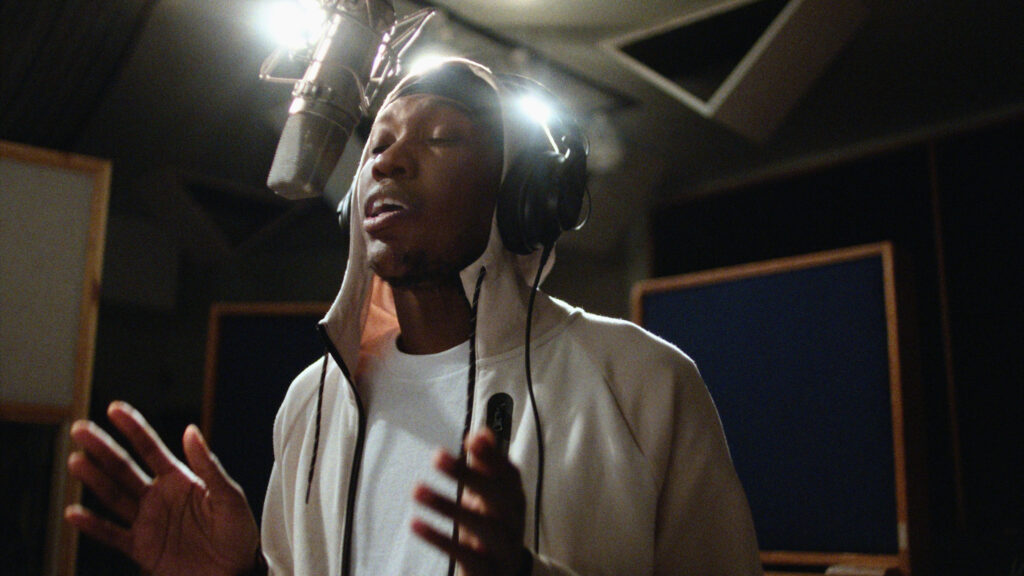
(***)
Rap lyrics have been used as evidence in more than 700 trials since 1990, and not to the benefit of rappers on trial. To their detriment. It’s time to talk about it.
If using spoken word about what you see, hear, feel and experience can come back to bite you, wouldn’t you like to know? As per this footage, D.A.s cite rappers’ graphic words to bolster cases against them if they’re on trial for crimes. This tactic is so powerful it convinces artists they won’t win a good verdict, so when they’re offered plea deals with jail time, they take the deal. Sometimes even if they’re innocent. It’s a problem. A dirty secret.
Bravely and astutely Bronx rap artist Kemba and documentary director J.M. Harper investigate the criminal court trend, talk to victims and lawyers and build their case. While doing so they present Exhibit A: Rappers across America accused of crimes by aggressive attorneys who use their songs to demonize their character. Exhibit B: The First Amendment, which guarantees Freedom of belief, speech, press and assembly. Music artists aren’t being protected by the same creative freedoms afforded to filmmakers. That’s the trouble.
This is a very thoughtful exploration. Enlightening in many ways. Thorough research, detailed interviews and illuminating clips corroborate their arguments. Kemba articulates the filmmakers and his opinions like he’s defending a dissertation in front of Ph.Ds. His own raps songs are so eloquent, urban and poetic they underline his intelligence. He has same the acumen as a brilliant lawyer.
The angles cinematographers Logan Triplett and Allison Anderson Triplett chose are as perfect as their composition and lighting. A string of images (editor Emma Backman) and videos of 1950s to contemporary music traces the lineage of black musical expression. Black folks covertly communicating through music, from slave songs to hip-hop music, is well documented.
It’s an enigmatic subject that needed to be aired. What’s missing, after all the research, testimony and data has been presented, is how rappers in the future will overcome the system and its injustices. Showing the problem—from the U.S. to U.K.—isn’t nearly as important as a valid plan-of-attack and solutions. A dramatization of Kemba facing a hostile court leaves a clue, but it’s not enough.
Still, an integral part of any good documentary’s mission is exposing wrongs and spreading the word. In that way As We Speak… is a very good doc.
Photo’s courtesy of Sundance Institute.
For more information about the Sundance Film Festival go to: https://festival.sundance.org
Visit Film Critic Dwight Brown at DwightBrownInk.com.